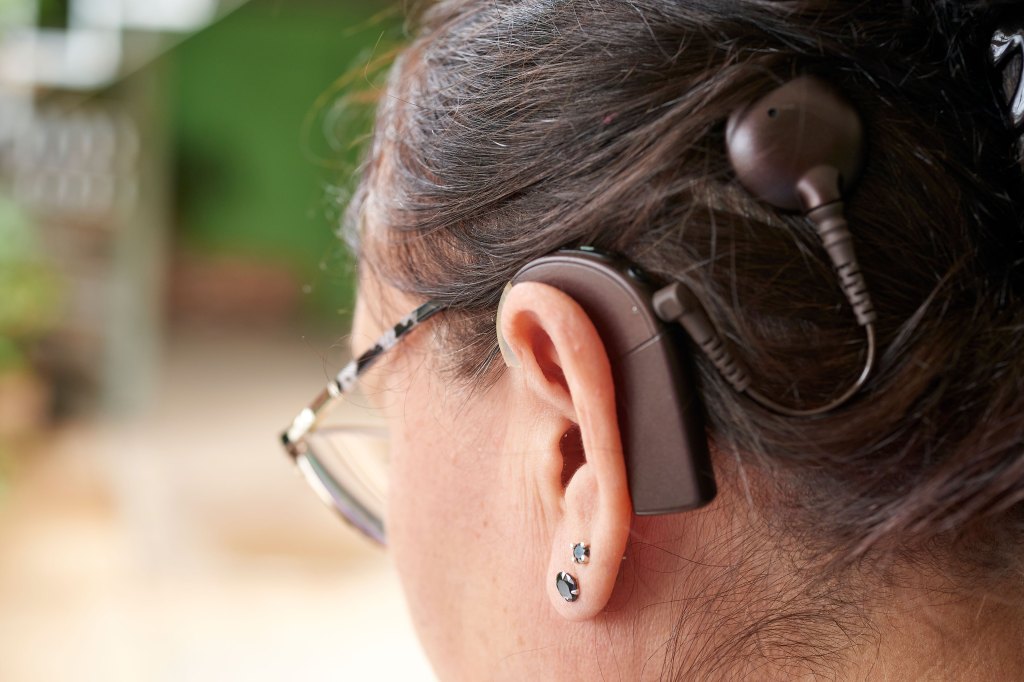
News
October 23, 2025
When a Hearing Aid Isn’t Enough
More older adults have turned to cochlear implants after Medicare expanded eligibility for the devices.
**When a Hearing Aid Isn’t Enough**
For years, hearing aids have been the go-to solution for individuals experiencing hearing loss. However, for some, these devices simply don't provide the level of clarity and amplification needed to fully engage with the world around them. Now, a growing number of older adults are finding a renewed sense of connection through cochlear implants, a trend fueled in part by expanded Medicare eligibility for the advanced technology.
While hearing aids amplify sound, cochlear implants work differently. They bypass the damaged portions of the inner ear and directly stimulate the auditory nerve, sending electrical signals to the brain which are then interpreted as sound. This can be a game-changer for those with severe to profound hearing loss who receive limited benefit from hearing aids.
The recent increase in cochlear implant adoption among older adults is largely attributed to the broadening of Medicare coverage. This expansion has made the procedure more accessible and affordable, allowing more individuals to consider it as a viable option. Previously, the cost of the device and the associated surgery, rehabilitation, and follow-up care could be a significant barrier.
The impact of cochlear implants extends far beyond simply hearing better. Many recipients report improved communication, reduced feelings of isolation, and an overall enhancement in their quality of life. They can once again participate in conversations, enjoy music, and feel more connected to their families and communities.
The decision to pursue a cochlear implant is a significant one, requiring careful evaluation and consultation with an audiologist and surgeon. Candidates undergo thorough testing to determine if they meet the criteria for implantation and to assess their potential for benefit. The process also involves pre-operative counseling and post-operative rehabilitation to help patients adapt to their new way of hearing.
While cochlear implants are not a perfect solution for everyone, they offer a powerful alternative for those who haven't found relief with traditional hearing aids. The expanded Medicare coverage is opening doors for a growing number of older adults to experience the profound benefits of this life-changing technology, enabling them to reconnect with the sounds and voices that enrich their lives. As awareness of cochlear implants continues to grow, even more individuals are expected to explore this option and rediscover the joy of hearing.
For years, hearing aids have been the go-to solution for individuals experiencing hearing loss. However, for some, these devices simply don't provide the level of clarity and amplification needed to fully engage with the world around them. Now, a growing number of older adults are finding a renewed sense of connection through cochlear implants, a trend fueled in part by expanded Medicare eligibility for the advanced technology.
While hearing aids amplify sound, cochlear implants work differently. They bypass the damaged portions of the inner ear and directly stimulate the auditory nerve, sending electrical signals to the brain which are then interpreted as sound. This can be a game-changer for those with severe to profound hearing loss who receive limited benefit from hearing aids.
The recent increase in cochlear implant adoption among older adults is largely attributed to the broadening of Medicare coverage. This expansion has made the procedure more accessible and affordable, allowing more individuals to consider it as a viable option. Previously, the cost of the device and the associated surgery, rehabilitation, and follow-up care could be a significant barrier.
The impact of cochlear implants extends far beyond simply hearing better. Many recipients report improved communication, reduced feelings of isolation, and an overall enhancement in their quality of life. They can once again participate in conversations, enjoy music, and feel more connected to their families and communities.
The decision to pursue a cochlear implant is a significant one, requiring careful evaluation and consultation with an audiologist and surgeon. Candidates undergo thorough testing to determine if they meet the criteria for implantation and to assess their potential for benefit. The process also involves pre-operative counseling and post-operative rehabilitation to help patients adapt to their new way of hearing.
While cochlear implants are not a perfect solution for everyone, they offer a powerful alternative for those who haven't found relief with traditional hearing aids. The expanded Medicare coverage is opening doors for a growing number of older adults to experience the profound benefits of this life-changing technology, enabling them to reconnect with the sounds and voices that enrich their lives. As awareness of cochlear implants continues to grow, even more individuals are expected to explore this option and rediscover the joy of hearing.
Category:
Politics